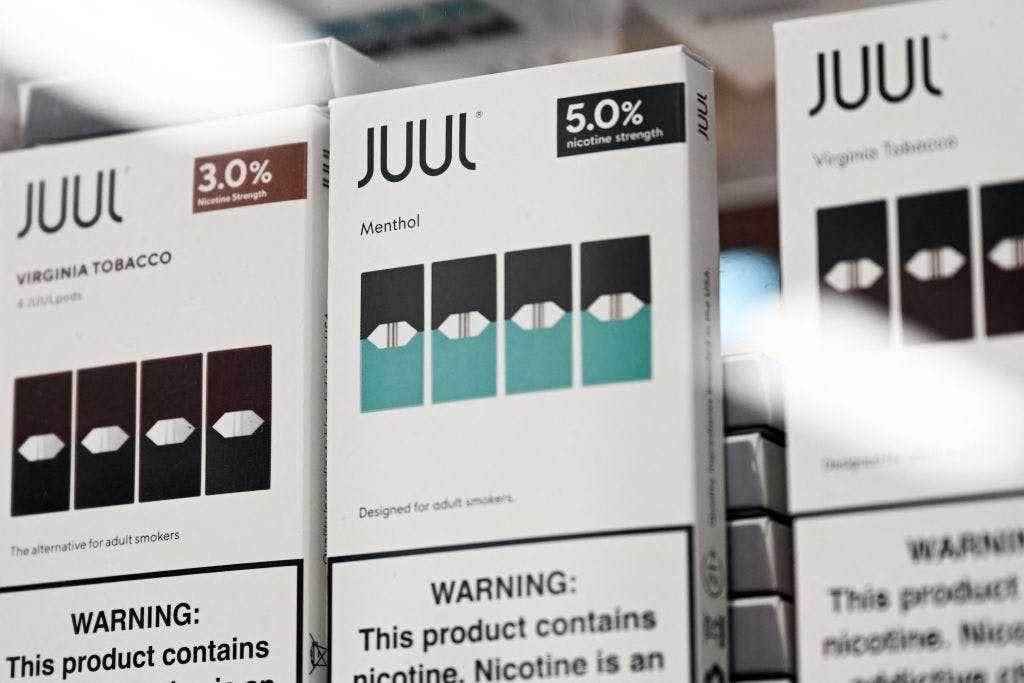Four-figure Juul settlements are the hot new social-media trend
As part of a $200 million+ settlement, Juul has been Venmoing former customers thousands of dollars.
While researching (read: scrolling through X mindlessly) yesterday, I came across some interesting screenshots showing that folks were receiving four-figure Venmo payments from “Juul Labs, Inc. Settlement Administrator.”
a reminder to sign up for any class action lawsuits you could even remotely apply to pic.twitter.com/PCYvqPlfZA
— katie (@kayteefox) October 21, 2024
A class-action lawsuit was filed against Juul and tobacco company Altria, which bought 35% of Juul Labs for $12.8 billion in 2018, with the plaintiffs alleging that Altria and Juul had led consumers to overpay for Juul products by misleading them about the products’ addictiveness and safety, and that Juul products were unlawfully marketed to minors.
In 2022, Juul agreed to a $245 million settlement, and earlier in 2024, Altria agreed to a $45 million settlement. After fees and taxes, this worked out to $201.9 million being paid out to verified claimants, and on October 18, 2024, those payments started to be distributed, hence the screenshots I saw floating around social media.
According to the BBC, 14 million people tried to claim a share of the settlement, but ultimately, about 842,000 claims were officially validated, averaging out to a ~$240 payout per person. However, as you can see from the screenshots, many of these settlements are more than a magnitude greater than $240, so I decided to look into how exactly this settlement worked. The details are just fantastic.
First, claimants had to submit proofs of purchase, which included date of birth, month and year of a claimant’s first Juul purchase, their frequency of purchase, proof of identification, payment information, and, for claims over $300, proof of purchase via receipts. Claimants who were approved were then allocated “points” based on their age and the years in which they made their purchases, and the total settlement would be distributed pro rata based on claimants’ points.
Claimants who purchased between 2019 and 2022 would get one point, claimants who purchased between 2015 and 2018 would get two points, and “Youth Purchases,” which meant any made by an individual whose first purchase occurred before their 18th birthday, were worth four points.
So if you were a 17-year-old in 2016 who bought, and consequently got hooked on, Juuls, and you continued to buy said Juuls through college, all of your purchases got a 4x point multiplier. Not bad! Unfortunately, there were a few factors that limited the total payouts one could receive:
First, “no Retail Expenditure used to assign Points may exceed $1600 per year,” and second, there was a payment cap for claimants equal to 150% of eligible retail expenditures, or 300% of expenditures in the case of Youth Purchases. However, the largest hypothetical payout from this settlement is still pretty good.
Using the settlement’s class-payment cap, if a 17-year-old in 2015 bought at least $1,600 of Juuls and Juul accessories, and proceeded to do so every year through age 24 in 2022, they could, hypothetically, receive $38,400 (300% times $1,600 per year for eight years). It’s unlikely that anyone received that amount, given that expenditures used to assign points couldn’t exceed $1,600 per year, and the distributions were paid out pro rata based on points, but it is possible.
The logic behind this settlement fascinates me. As someone who was in college between the years of 2015 and 2019, I had plenty of friends (not me) who’d bought Juuls, and not a single one of them was shocked to find out that Juul may have been less healthy than advertised. They were smoking flavored nicotine from a battery-powered Wii remote. Also, the rationale that someone who bought a Juul in 2015 at age 17 would still be eligible for a 4x higher distribution on their purchases from 2022 at age 24 is fantastic, too.
Still, I wish the class-payment cap didn’t exist, so we could see how large some of these distributions would have been. In our social-media age where dopamine is more valuable than gold, folks all over TikTok and X are chasing engagement by showing off their $3,000 Juul Venmo payments. You have to think that, somewhere, an upper-class 17-year-old in 2015 with access to an Amex black card was dropping $20,000+ on Juuls every year, and I would love to see the viral TikTok of a Juul settlement whale sharing their $200,000+ Juul payout for social-media clout.
For now, it looks like we’ll have to settle for (no pun intended) the $3,000 TikTok reaction videos.
